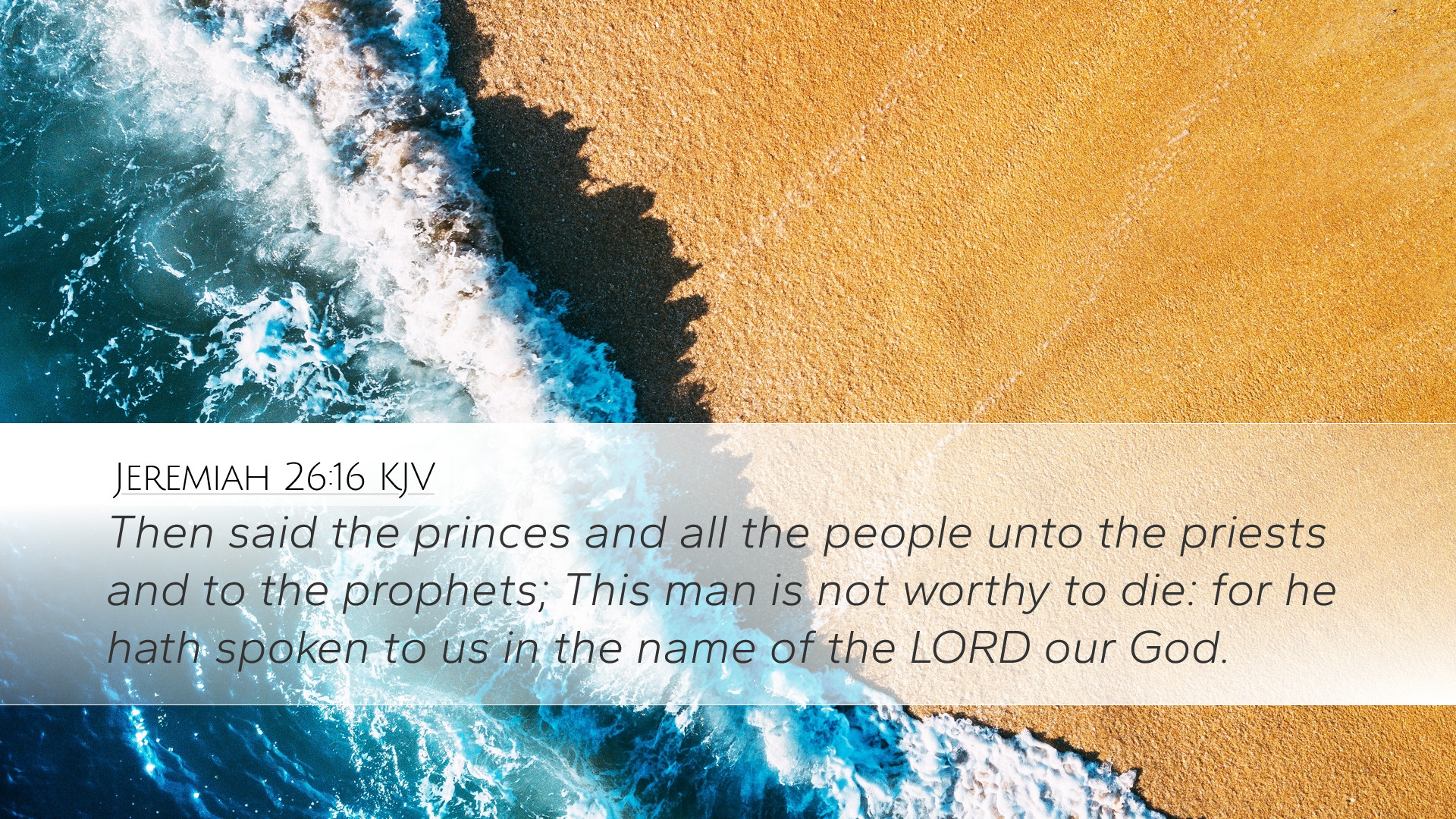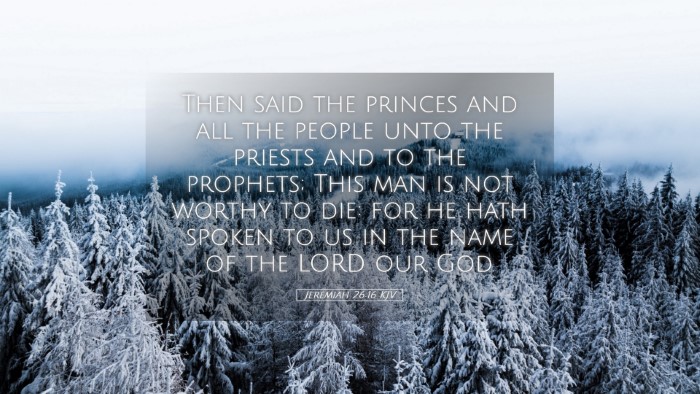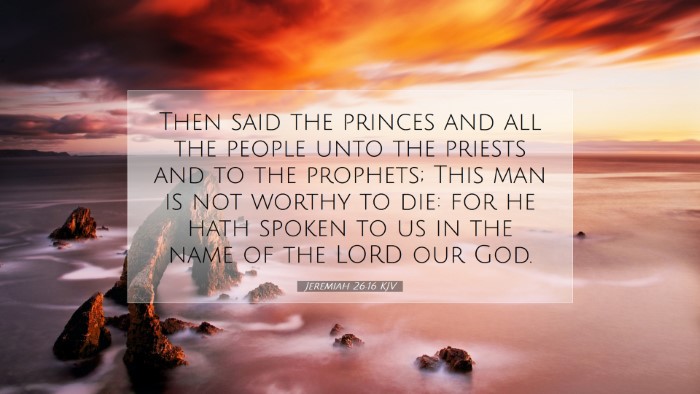Commentary on Jeremiah 26:16
Jeremiah 26:16 is a pivotal verse within the larger context of Jeremiah's prophetic ministry. This verse highlights the response of the people to the prophet's dire message, showcasing a blend of fear, reverence, and the consideration of divine justice.
Text of the Verse
“Then said the princes and all the people unto the priests and to the prophets; This man is not worthy to die: for he hath spoken to us in the name of the Lord our God.”
Contextual Overview
To fully appreciate Jeremiah 26:16, we must consider the chapter's context. Jeremiah had prophesied the coming judgment upon Jerusalem, warning that the city would be destroyed if the people did not repent. His message was met with considerable hostility, and he faced immediate threats to his life.
Responses from Public Domain Commentaries
Matthew Henry
According to Matthew Henry, this verse illustrates the shift in public opinion regarding Jeremiah. Initially, the people and their leaders expressed a strong desire to put Jeremiah to death for his unpopular message. However, upon reflection and recognition of the prophet's authority—speaking truly in the name of the Lord—there emerges a vital distinction made by the princes and the people. They argue for Jeremiah's defense, suggesting that his words, although harsh, spoke from a place of divine truth. Henry emphasizes that true prophets are not to be slain when they faithfully declare God's messages.
Albert Barnes
Albert Barnes offers insight into the dynamics of authority and accountability in religious leadership. He points out that the princes and the people did not simply dismiss Jeremiah's proclamations; rather, they recognized the potential consequences of executing a prophet who had faithfully delivered a message from God. Barnes notes that their deliberation reveals an essential aspect of leadership: a willingness to submit to divine will, even amidst populist pressures. The acknowledgment of Jeremiah's prophetic role signifies a moment of corporate reflection, urging the people to weigh their actions against the gravity of direct communication from God.
Adam Clarke
Adam Clarke expounds on the relational dynamics at play between the prophets, priests, and the civic leaders. By stating that Jeremiah “is not worthy to die,” the leaders exhibit a burgeoning respect for the prophetic office that had previously been disregarded. Clarke draws on historical examples to demonstrate how the fear of God can provoke a change in trajectory for nations and their leaders, urging them to reconsider their intended course of action. He emphasizes how the fear of divine judgment can invoke change and a call to repentance, crucial to facilitating *restoration and revival* in a people distant from God.
Theological Implications
This verse encourages vital theological reflections concerning the roles of prophets and leaders within a faith community:
- The Role of Prophecy: The acknowledgment of Jeremiah's status as a prophet despite the hostility he faced suggests the necessity of prophetic voices in guiding the community towards truth.
- Intercessory Leadership: The princes serve an intercessory role, advocating for Jeremiah. This role mirrors the intercessory nature of Christ, urging leaders to mediate for the truth and righteousness within their communities.
- Necessity of Divine Communication: This commentary reflects the importance of discerning the voice of God, which requires humility and submission to divine authority.
Conclusion
Jeremiah 26:16 serves as a powerful reminder of the responsibilities held by both prophetic figures and civic leaders within the faith community. The turn of the princes and the people from condemning Jeremiah to recognizing his divine commission underscores the ongoing relevance of prophetic confrontation within the life of the Church today. As pastoral leaders and theologians reflect upon this text, they are urged to cultivate hearts that understand and respect the weight of God's spoken word through His prophets.
In summary, this verse exemplifies the critical dialogue between prophecy and public response, urging all involved in the faith community to engage earnestly with God's truth, provide proper respect for prophetic voices, and ensure that leadership aligns with divine justice and righteousness.


